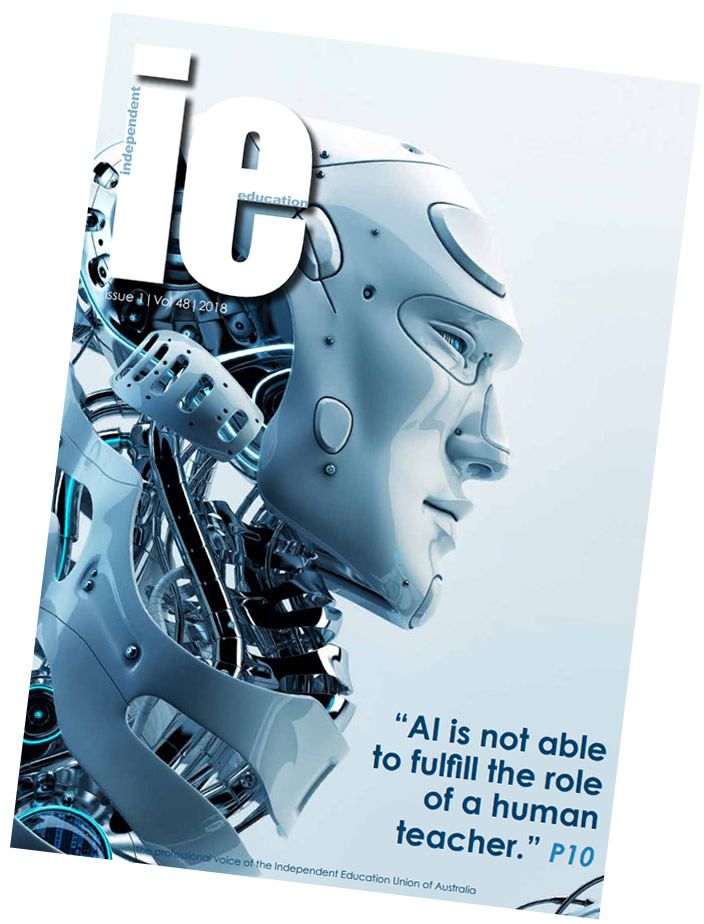
Throughout Australia, teachers and support staff demand to be heard in the ever changing world of education.
In this edition you’ll read about human markers vs robot markers for NAPLAN, and the IEUA’s position on the future of automation in marking tests (p10).
Despite the early promise of the internet as a forum for increased democracy, it seems that inequality and injustice is becoming entrenched. Education unions are finding that their work in the 21st century is examining and challenging edu-business and edu-preneurialism. Read about the way education unions are responding, and the way teachers need to be vigilent and engaged (p14).
Emily Rotta of Transitional Support writes about high achievers and burnout and the development of emotional intelligence to the reduce the risk of compassion fatigue (p12).
Girls need to be involved in decision making about uniform policies and choices - this case is put forward by Girls’ Uniform Agenda, and it’s good reading (p24).
There are a range of teaching resources reviewed here too, from new interactive websites about Stolen Generations to improving working memory and attention through Memory Mates (p16).
Kirsty Costa offers a world of helpful resources available to help school staff bring to life the environment, sustainability, environmental sciences and English (p26).
IEUA VicTas shares invaluable findings on the Branch’s survey that focused on support staff and building employee skills capacity (p22).
In this edition, Kaleidoscope features the remarkable story of Professor Marie Bashir, who from her notable roles in health, education, the arts and politics has changed lives for many in Australia and throughout the world. Professor Bashir talks of the teachers and mentors who shaped her thinking and her life (p6).
As we go to print, the 2018 Australian Principals Health and Wellbeing Survey Report is being compiled. See our next edition of IE for a summary and analysis.
John Quessy
iemagazine@ieu.asn.au


































































































































